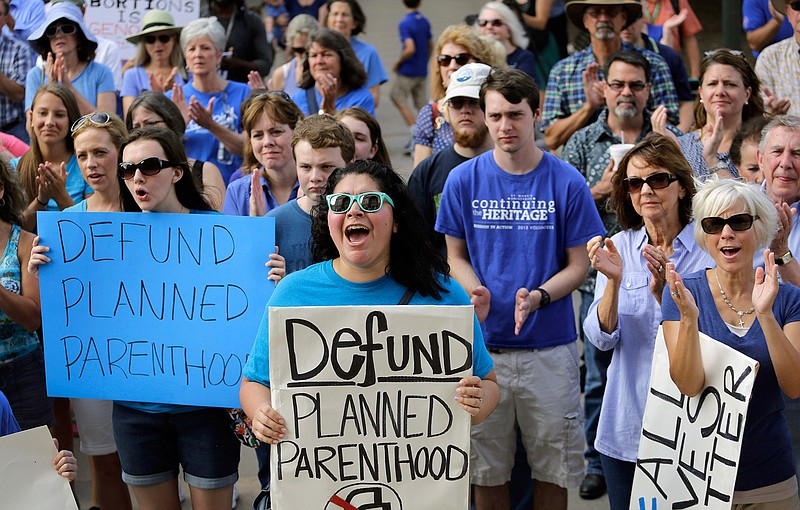AUSTIN-A federal judge deciding whether Texas can block Planned Parenthood from receiving Medicaid dollars scolded attorneys Tuesday for rehashing the debate over secretly recorded videos that Republicans across the U.S.-Texas included-have used to try defunding the nation's largest abortion provider.
"You can give me all this baloney you want," said U.S. District Judge Sam Sparks, who became visibly frustrated after a Planned Parenthood employee testified for an hour about discussing fetal tissue research on the videos, which were filmed and heavily edited by anti-abortion activists posing as founders of a fake biomedical startup.
Come Saturday, Planned Parenthood will stop receiving Medicaid money in Texas unless Sparks blocks the ouster. His decision is expected later this week.
Federal judges across the U.S. have so far stopped other Republican-controlled states from similarly cutting off Medicaid dollars to Planned Parenthood. That list includes Arkansas, Alabama, Mississippi and Kansas.
Planned Parenthood of Greater Texas argued that non-abortion care to nearly 11,000 low-income women is at stake.
"They know us. They trust us," president Ken Lambrecht said. "My fear is they won't know where to turn."
Sparks told attorneys he wanted to know about the type of Medicaid services Planned Parenthood provides and how many clinics are impacted. He suggested that any arguments or testimony outside of that information won't have bearing on his decision.
In the states that have tried to cut off Medicare funding, Republican officials have justified the attempted actions by citing the videos filmed by the anti-abortion group Center for Medical Progress. Some feature Melissa Farrell, a researcher at a Planned Parenthood clinic in Houston, who testified Tuesday that her conversations were spliced and wrongly portrayed.
The footage from Houston showed people pretending to be from a company called BioMax that procures fetal tissue for research touring the facility. The makers of the videos, two anti-abortion activists from California, were indicted on charges of using fake IDs but those charges were later dismissed.
Investigations by 13 states into those videos have concluded without criminal charges, and Planned Parenthood officials have denied any wrongdoing.
Sparks is the same judge who put on hold new Texas rules requiring the burial or cremation of fetal remains.
Originally scheduled to take effect in December, the rules were challenged by abortion-rights groups, who say such regulations don't provide any public health benefits and instead seek to shame women and make it tougher for doctors to perform abortions.

